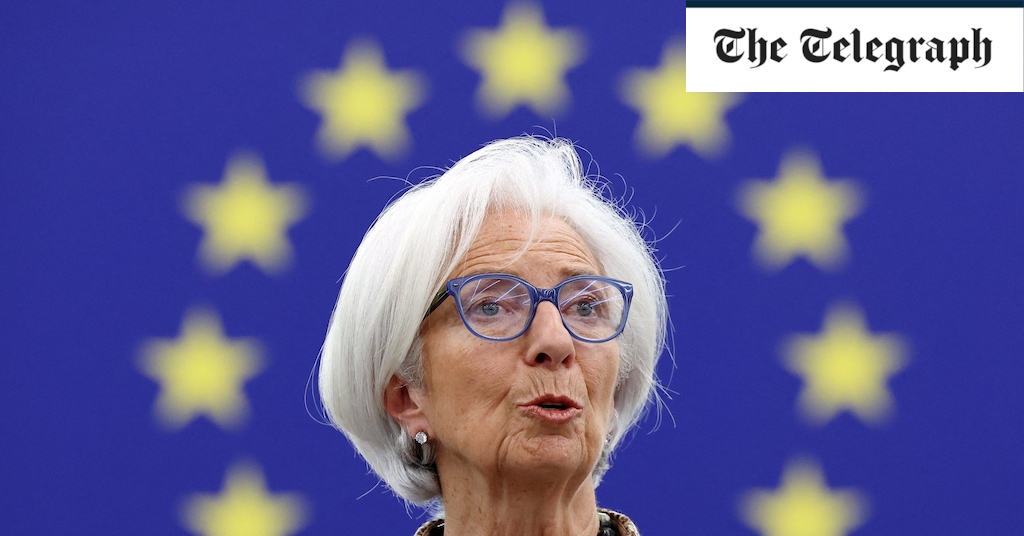Eurozone inflation accelerated to its highest level in four months as European Central Bank President Christine Lagarde prepared to cut interest rates.
The ECB is expected to become the first major central bank to cut borrowing costs in June after almost three years of high inflation.
Inflation rose to 2.6% in the year to May from 2.4% the previous month, Eurostat data showed.
The figure was higher than the 2.5% that analysts had expected, suggesting that the threat of higher inflation still looms over the central bank.
In France, the euro zone's second-largest economy, inflation rose for the first time this year, rising to 2.7% in May from 2.4% previously.
Germany is also struggling with persistent inflation, with price increases surging to 2.8% from 2.4% last month.
The service industry, which includes bars and restaurants, is a key concern for rate setters in Frankfurt, with a closely watched gauge rising to 4.1% from 3.7% in the year to May.
Despite the risk of price hardening, traders are still almost fully pricing in the ECB cutting interest rates from their record 4% for the first time in June.
European policymakers have made it clear to markets that a rate cut is imminent, with Lagarde saying last week that a cut is “highly likely” in June “if the data support our level of confidence.”
The ECB's initial move will pave the way for the Bank of England and the Federal Reserve to follow suit.
The announcement comes after the Fed's preferred inflation gauge stagnated at 2.7% in the year to April, as expected.
Investors are largely expecting the first rate cuts to come in November, just after the U.S. presidential election.
That's similar to traders' expectations for an initial move from the Bank of England, but many analysts believe it could come as early as August.
British savers put record amounts of cash into ISAs last month in anticipation of looming interest rate cuts, Bank of England data showed on Friday.
The amount of money put into ISAs by households rose by £11.7 billion in April, the highest since records began 25 years ago.
The sharp rise comes as the central bank is expected to start cutting interest rates, which are at their highest in 16 years.
Inflation fell to 2.3% in April, within reach of the bank's 2% target.

